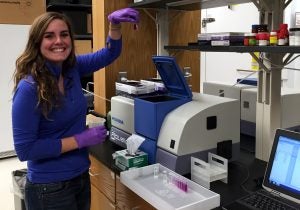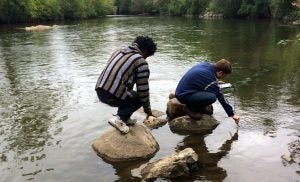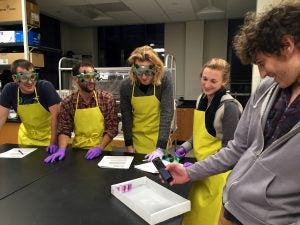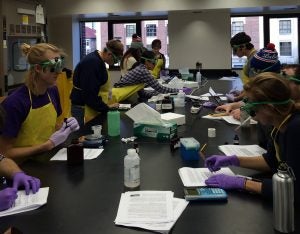Fall Semester, 4.0 Credit Hours
Course description: The objective of this course is to develop an understanding of the chemical compositions of natural waters, emphasizing both chemical and biogeochemical processes operating near Earth’s surface; equilibrium vs. kinetic controls on chemical weathering; solute sources and mass balances in watersheds, groundwater, and river/ocean mixing zones. Hands-on field and lab experience provides training in methods of applied geochemistry.


This work is/was supported by the University of Michigan Water Center, a center of the Graham Sustainability Institute. The Water Center is supported by funds from the Fred A. and Barbara M. Erb Family Foundation and the University of Michigan. The Water Center is part of the University of Michigan’s Graham Sustainability Institute and is supported by funds from the Fred A. and Barbara M. Erb Family Foundation and the University of Michigan.


